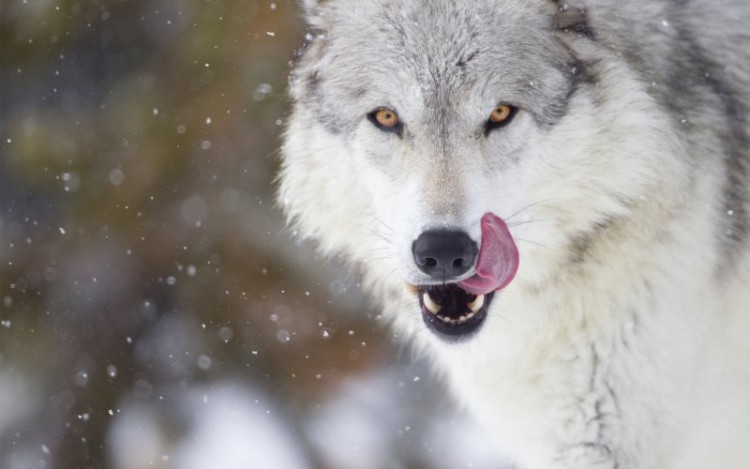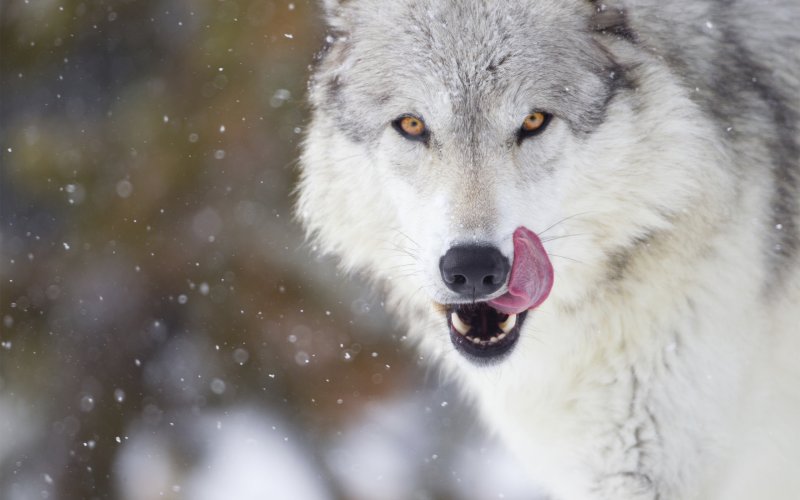
The effects of wolves on livestock are also overblown
Data from Michigan’s Upper Peninsula and other parts of the country where wolves live show that they are responsible for a very small amount of killing—between 0.1 and 0.6 percent of all livestock deaths in these areas. A 2014 Washington State University study, conducted over a 25-year period, found that indiscriminate killing of wolves actually increases the tendency of wolves to prey on livestock. The reason may be that sport hunting and commercial trapping of wolves break up stable wolf packs, creating a younger, less experienced population, inexperienced in killing traditional prey and more likely to show opportunism and pick off a sheep or calf. And of course, farmers who deploy guard dogs as a highly successful strategy of protecting their flocks and herds from predators can thank the wolf itself for that service.
In exaggerating the adverse impacts of wolves, the proponents of wolf killing underreport these good effects. Wolf predation helps maintain healthy deer populations, to the benefit of forestry, agriculture, and wildlife management. By killing sick deer, wolves can contain the spread of diseases that can be catastrophic for deer populations. And what automobile drivers haven’t been concerned, to one degree or another, by the possibility of colliding with a deer on the road? The insurer State Farm reports that there are roughly 1.2 million deer—vehicle collisions in the United States every year, causing some 200 human fatalities and about $4 billion in vehicle damage. Michigan typically accounts for about 50,000 of those collisions a year, with thousands of them in the Upper Peninsula. If the wolves maintained viable, healthy herds by taking mainly the young, weak, and sick deer, they might save tens of millions of dollars in repair and insurance costs, to say nothing of the incalculable benefits of preventing the loss of human life.
“Wolves provide a firewall against new diseases in deer,” Rolf Peterson told a Michigan Senate committee when the issue of wolf hunting was being debated. “A very obvious example may be chronic wasting disease.” Chronic wasting disease (CWD) is a brain disease, like Mad Cow Disease, and it’s one of the major threats to deer populations, after it spread from deer farms and captive hunting facilities to free-ranging deer populations—another case of reckless trophy hunters visiting more affliction upon wildlife. The Wisconsin Department of Natural Resources, which says there are more than 400 deer farms in the state, notes that the disease has been spreading in large portions of the southern part of the state, since a major outbreak of the brain disorder in 2002.
“So far CWD has not spread into areas inhabited by wolves, anywhere in the United States,” Peterson said, “and the logical hypothesis is that wolves simply cull out diseased animals.” The disease is an ugly and nonselective way of reducing deer populations, and it creates a health risk to people who eat deer meat since the disease can be transmitted to people through its human variant, Creutzfeldt-Jacob Disease.
And while the indirect economic benefits that wolves bring may provide their greatest value, there are direct benefits, too. As with Isle Royale, people also just love to see wolves; to hear wolves; and to place themselves, even for a short while, in a wild place that harbors wolves. Each year, thousands of wildlife watchers gaze at the world’s most-viewed wolves in the Lamar Valley of Yellowstone, bringing in $35 million to the Yellowstone region annually. In the Great Lakes region, the International Wolf Center in Ely, Minnesota, receives $3 million each year from wolf watchers. With wolves now claiming a more permanent place in the Great Lakes Region, we can expect tourism-related revenues to increase in all of the states with wolves.
John Vucetich is leery of invoking the practical, economic arguments about wolves, though he readily acknowledges their validity. It’s just that he believes the moral argument for protecting wolves is the most important and compelling. He understands, however, that political decisions and public policy more often turn on economics.
Source: Let’s Ditch the ‘Big, Bad Wolf’ Cliché – The Daily Beast
